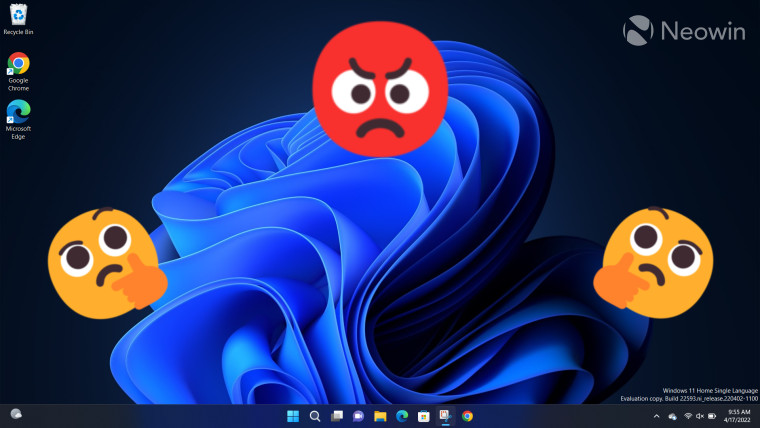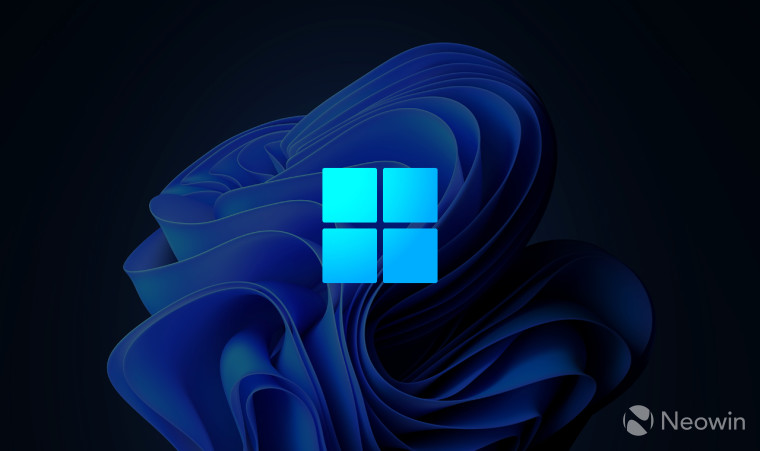
Back when I reviewed Windows 11 for Neowin in 2021, I awarded it a score of 6.5/10, while saying that "simplification of UI isn't a terrible idea but having it there in a half-baked manner doesn't really make for an enticing user experience". Although that was my opinion based on the launch version of the OS, unfortunately, it still hasn't changed more than six months later.
Microsoft seems intent on adding new features as we have seen in recent Insider releases, while ignoring all the UI inconsistencies and lack of basic functionalities in the existing release. Let me start off with a very simple yet important example which was highlighted by my fellow colleague Taras Buria on Twitter just a few weeks ago:
Windows is a joke. Look at all these stock apps (and probably many more, idk, I uninstall them right after the initial setup) with completely random UI and UX choices pic.twitter.com/pytTDKR3Dv
— Taras (@TarasBuria) March 23, 2022
Despite all of the apps in Taras' screenshot being inbox apps developed by Microsoft itself, we see UI and UX inconsistencies throughout, as if there is no senior leadership overseeing the OS' design. Even the styling of the icons is different, some have thicker borders while others are more minimalistic. It's as if each development team worked in their own silo and just focused on what they thought would make their app look pretty, regardless of the overall aesthetics of Windows 11.

In fact, this problem is not contained to icons only. We still have legacy menus older than Windows 10 spread throughout the OS (see screenshot above) and menu options that have basically been lifted and shifted from previous versions of Windows without the overall UX being considered at all.
All of this indicates a clear lack of design standardization, which isn't a good look for an OS that is being used by millions of people.
We also have the problem of basic functionalities that are missing. Microsoft is still refusing to let people move the Windows 11 taskbar for ludicrous reasons, but hey, as long as you can spin the settings icon in Notepad, everyone's happy, right?:
But hey, you can SpIn tHe SeTtInGs bUtToN iN NoTePaD
— Taras (@TarasBuria) March 23, 2022
Good to see Microsoft keeping its priorities straight, well done! pic.twitter.com/HRWiNhCJHF
There is some nuance here so let me be crystal-clear here. Of course the Windows 11 development team is big and consists of multiple sub-teams with different people working on different things. Of course, the people who added that Easter egg to Notepad aren't responsible for making the Taskbar movable.
But here's the thing, this type of prioritization makes for bad optics. It's not a good look when you're working on something as superficial as desktop stickers and a spinning cog while your inbox Notepad app goes completely bonkers in specific scenarios:
Dragging a file to Notepad while settings is open produces this. pic.twitter.com/whYOQichIr
— Xeno (@XenoPanther) April 16, 2022
I have no problem with this extra stuff being added down the line, but my main ask for Microsoft would be: Please get the basics right first.
And if you're wondering what these "basics" even are, Microsoft's own Feedback Hub is a great place to start. There are tons of items there with thousands of upvotes and ideally, Microsoft should be tracking these at a higher priority in terms of development. However, lots of these requests have been in limbo for several months now with no update from Microsoft and we even got a hint recently that the company ignores this feedback when it's convenient for it. If someone could point me to a highly requested feedback item for making the Notepad cog icon spin, desktop stickers, or any of the other superfluous feature that Microsoft is working on, I'd happily recant my argument.

To summarize for people who will just skip to the end of the article (or worse, defend Microsoft just after reading the headline), I will emphasize that I fully understand that Windows 11 is being continuously developed by multiple teams with their own focus areas, so it's unfair to expect things to change all at once. That's not what I'm asking for either.
However, there is a clear lack of centralized oversight that should be responsible for managing priorities, guiding development on missing functionalities, and standardizing UI design. This adds to the problem of bad optics where the actual highly requested feedback items have been open for months while Microsoft keeps on adding features that barely anyone asked for.
The issue with the existing approach is that each team will continue developing in their own focus area in a siloed manner and while that may result in a bunch of features being added, it may not be stuff that people actually asked for and it may give the impression that Windows 11 is a collection of disparate components rather than a cohesive OS, due to the UX inconsistencies.
I know (or at least, I hope) that things will improve down the line but given the extremely slow progress on UI consistency and development of basic functionalities in the past six months along with a new feature update due shortly, I feel like now is as good a time as any to call on Microsoft to reprioritize development activities and have a central oversight process in the pipeline.
Do you think Windows 11 development needs a shakeup in terms of centralized oversight? Let us know your thoughts in the comments section below!




_small.jpg)











41 Comments - Add comment
Advertisement